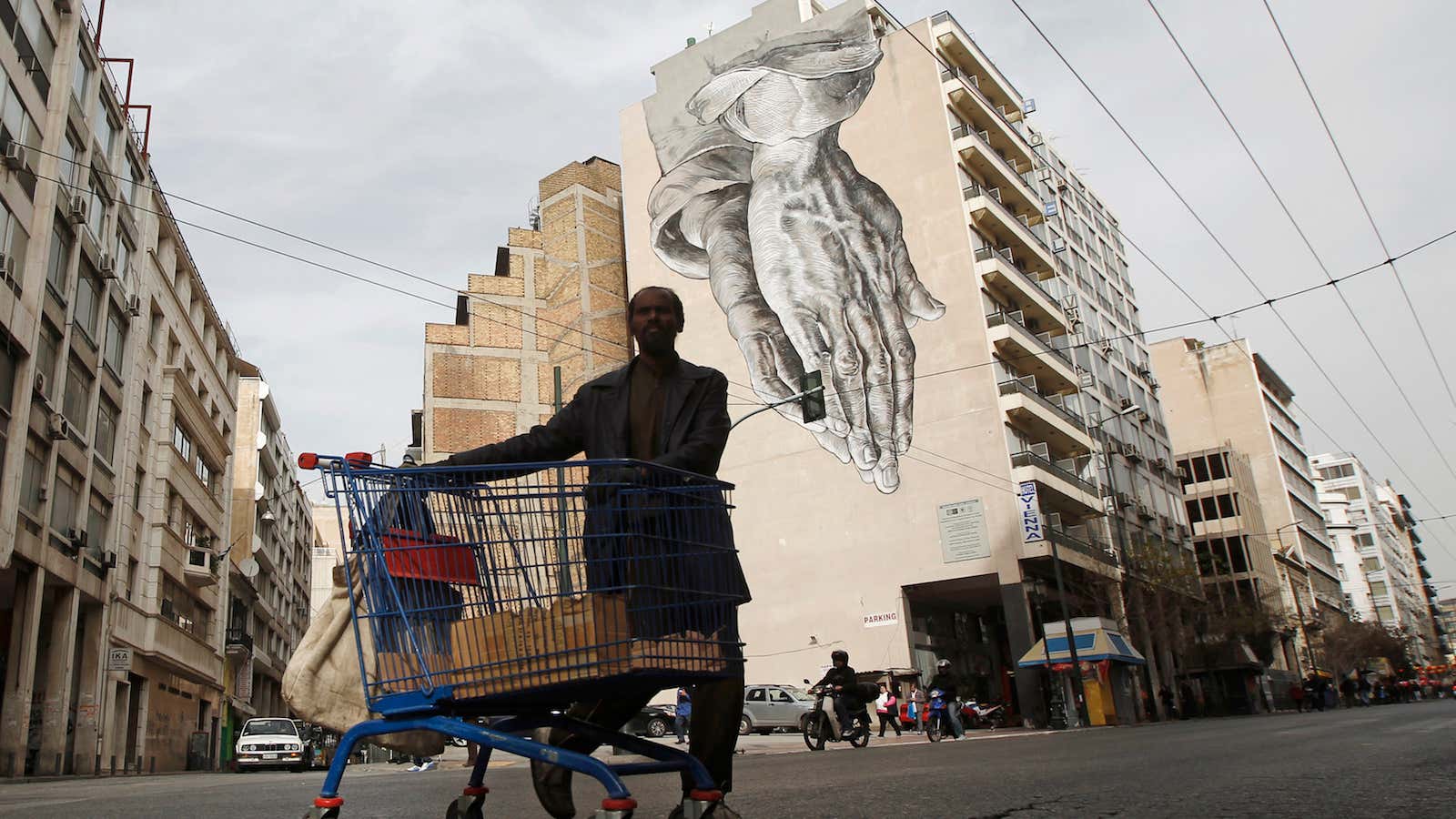#BoycottGermany is one of the most popular hashtags that have emerged from Greece’s debt crisis this past July. On the surface, it might seem laudable like other boycott campaigns. But while boycotts are a basic tool in progressive activism against violations of human or environmental rights by states or companies, under certain conditions, they can also be used for regressive goals.
On July 13, the day after a 17-hour Eurogroup meeting that produced a strict new austerity agreement for Greece, Twitter was taken up in a storm. Many called for a German boycott to resist the new austerity measures which they felt were imposed on the Greek government.
German brands, products and companies quickly became the target of a global boycott, with calls to boycott based on the barcode:
The past haunts #BoycottGermany. Use of the hashtag often includes references to the anti-Nazi boycott of 1933, when the rise of Hitler and anti-semitism mobilized a US and European boycott of German goods.
Comparing the past Nazi regime with Germany’s present government merely exacerbates mutual hatred among Germans and Greeks, and fuels more comparisons between Greeks and “others.” (Although some have also called for boycotts with a clearer goal of reasonably adjusting Greece’s debt.)
Tensions based on nationality and citizenship are already at the heart of a social crisis of Greece surrounding the increasingly incoming immigrant population. Boycotting Germany, insofar as it reinforces a hostile national identity, scratches this itch of nationalism.
Austerity already puts great stress on national conversations about “who belongs” in Greece. First, limited government funds means limited means of dealing with the sharp increase in refugees arriving on Aegean islands. Amnesty International recently stated that this is symptomatic of a failure by Europe’s leaders to adequately address the refugee crisis. This has resulted in the exploitation of fear and despair by nationalists, which was fostered by a media system which has plummeted to 91st place in World Press Freedom Index.
Greece’s fascist party, Golden Dawn, has further (ab)used this situation of economic degradation and desire for dignity by setting up exclusive and discriminatory solidarity initiatives such as food kitchens and social groceries for Greeks only.
Austerity has, therefore, promoted both symbolic and physical violence towards others.
Social economy initiatives based on solidarity have been organized by time banks (a way for people to exchange skills and services based on time, not money), alternative currencies, and barter markets are, on the other hand, positive offshoots of this elongated austerity age.
At the same time, #boycottGermany is no threat to the German economy. In an interview with the Spiegel, Volker Treier, head of the German Foreign Trade Chamber of Commerce (DIHK), stated [German]: “We’re taking this seriously, but there’s no reason to panic. There have been such calls, time and again since the beginning of the Greek crisis.” And of course, it is practically impossible to support a consumer boycott against Germany, when commercial interests have become transnational. One example: the national telecommunication agency (Hellenic Telecommunications Organization) was acquired by Germany’s Deutsche Telekom in 2011.
Boycotts are non-violent. They depend on rejection and abstention, not conflict. But there are reasons to be cautious of their symbolic violence. When addressing the nation, boycotts and ‘buycotts’ can aggravate nationalism within public culture and, importantly, ignore the complicated dynamics of contemporary global economy. Now with this third Greek austerity package, one thing is certain: we are about to witness extreme nationalisms on an entirely new level.




